Global biodiversity hotspot threatened by shockingly large and accelerating forest clearance for palm oil
In recent weeks, following years of reported declines in deforestation by palm oil companies, new reports are documenting an alarming uptick in forest destruction for palm oil across Indonesia. This concerning trend is clearly evident in the lush, carbon-rich rainforests in the south west of Indonesia’s world-renowned Leuser Ecosystem.
RAN is releasing fresh footage of deforestation within a globally important biodiversity hotspot amidst some of the last remaining lowland rainforests of the Leuser Ecosystem, in the district of Subulussalam. Satellite analysis shows shockingly large-scale clearance by a new rogue actor––called PT. Sawit Panen Terus––that has cleared over 1333 hectares (2800 acres) in the last year alone. Even worse, the evidence reveals that the rate of clearing has accelerated in the last 6 months.
The forest clearing is taking place in an area called the Singkil-Bengkung Trumon region that is renowned to be a deforestation hotspot in the supply chains of major brands. The clearing is taking place in nearby parts of the Leuser Ecosystem that have been destroyed for palm oil plantations by controversial palm oil producer PT. Laot Bangko ––a known supplier to major brands. Neighboring mills such as the PT. Samudera Sawit Nabati and PT. Global Sawit Semesta that are likely to source palm oil from this rogue actor once the plantation matures have been repeatedly exposed for driving deforestation in the area. A new mill called PT. Aceh Trumon Anugerah Kita (PT. ATAK) that has been constructed nearby may also be a driver of this case of plantation establishment.
Major brands like Mars, Nestlé, Colgate Palmolive and palm oil traders Fuji Oil (and others) report on their efforts to decrease deforestation for palm oil in this district––and in the operations of controversial palm oil suppliers in the region such as PT Laot Bangko––through their funding of Earthworm. It is clear that these efforts have failed to establish collaborative forest monitoring and response systems that are effective in halting deforestation across the district of Subulussalam.
The images and maps below show the destruction caused by PT. Sawit Panen Terus to the lowland rainforests inside and adjacent to the Leuser Ecosystem:
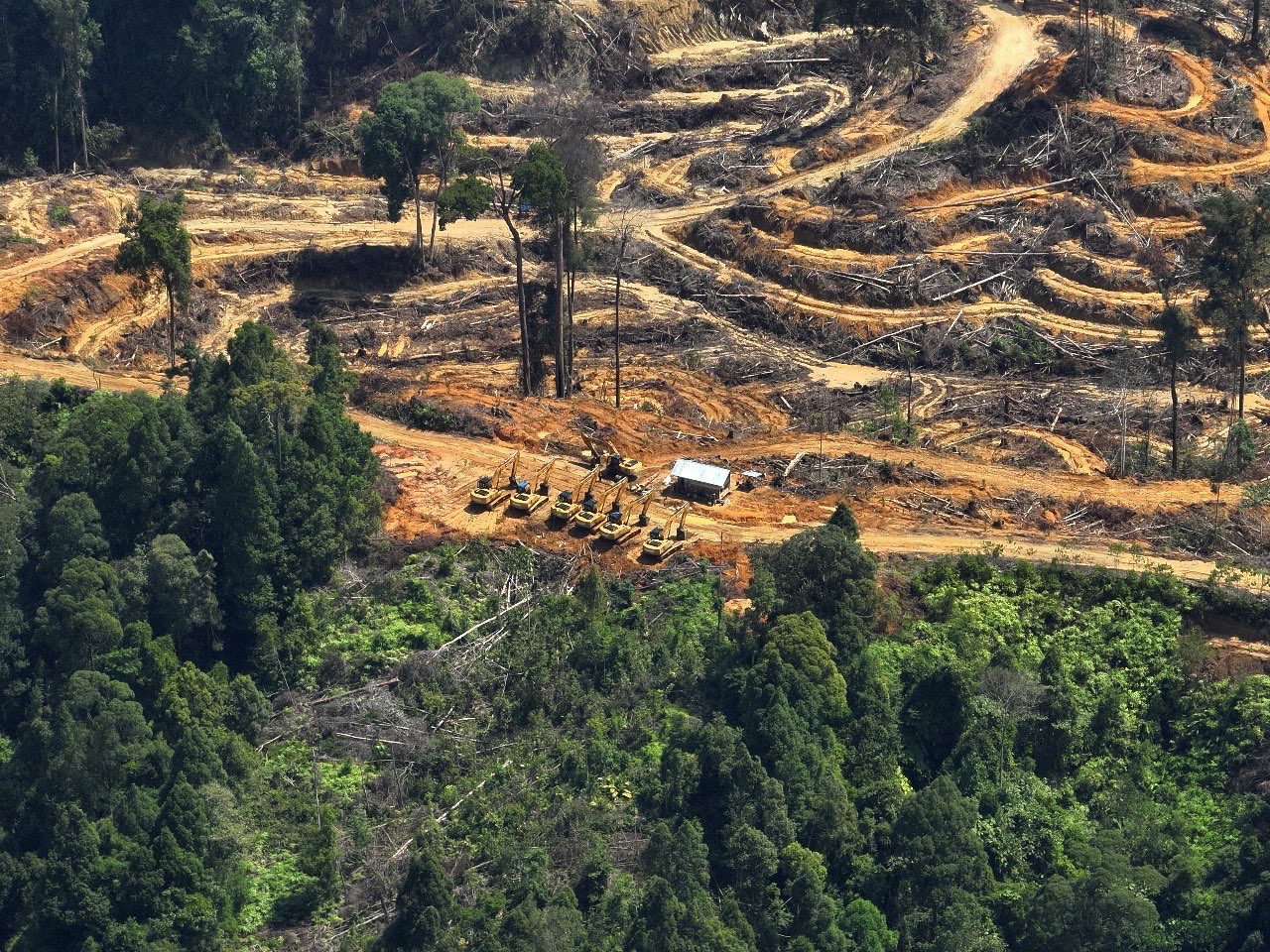
Bulldozers are being used by PT. Sawit Panen Terus to destroy significant areas of lowland rainforest in the Leuser Ecosystem, in the district of Subulussalam, Indonesia. February 2024. GPS Coordinate: 2°47’23.1″N 97°59’05.1″E
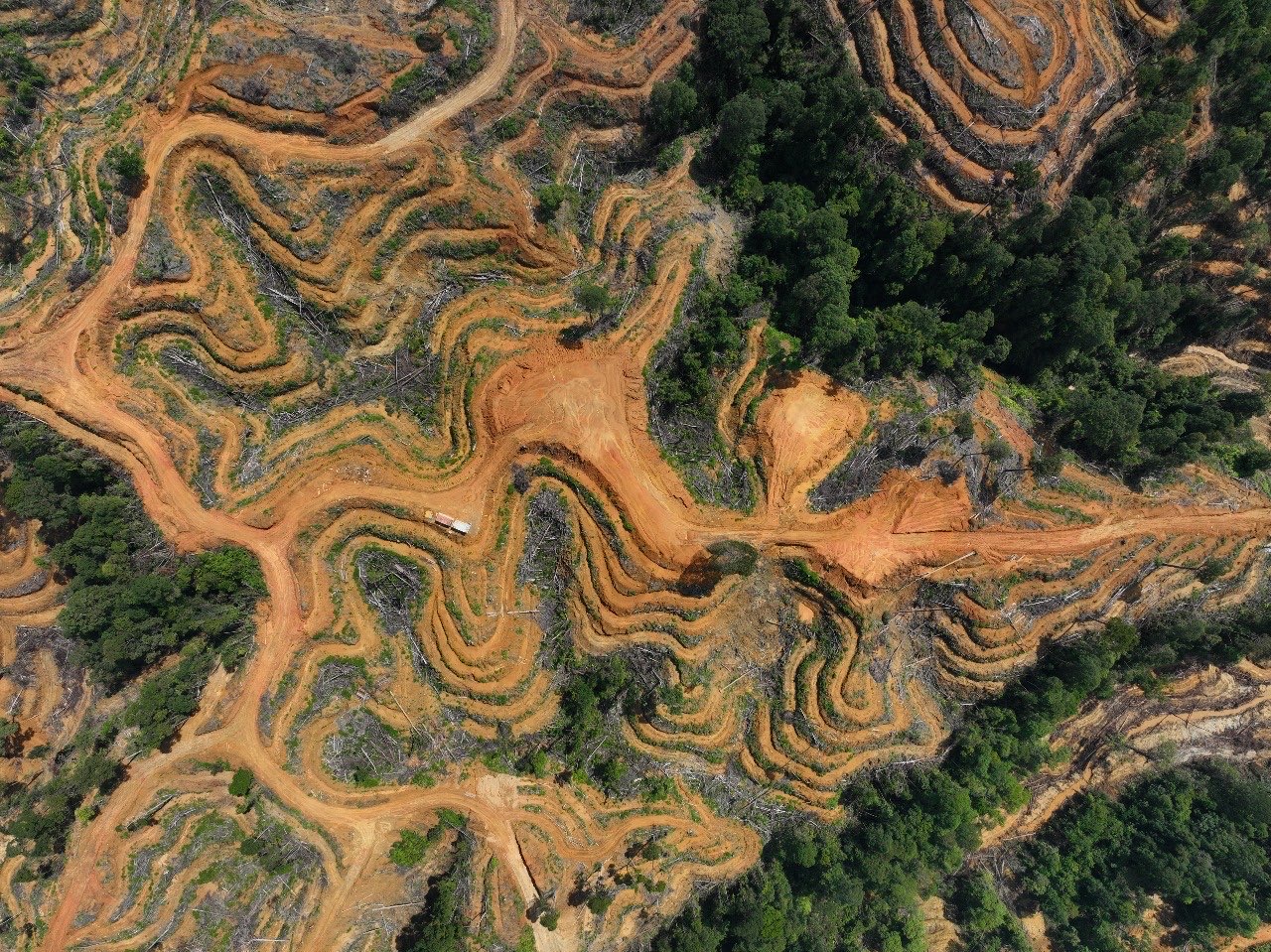
Large scale clearance of rainforests by PT. Sawit Panen Terus for a new palm oil plantation in the district of Subulussalam, Indonesia. February 2024. GPS Coordinates 2°47’19.9″N 97°58’45.0″E
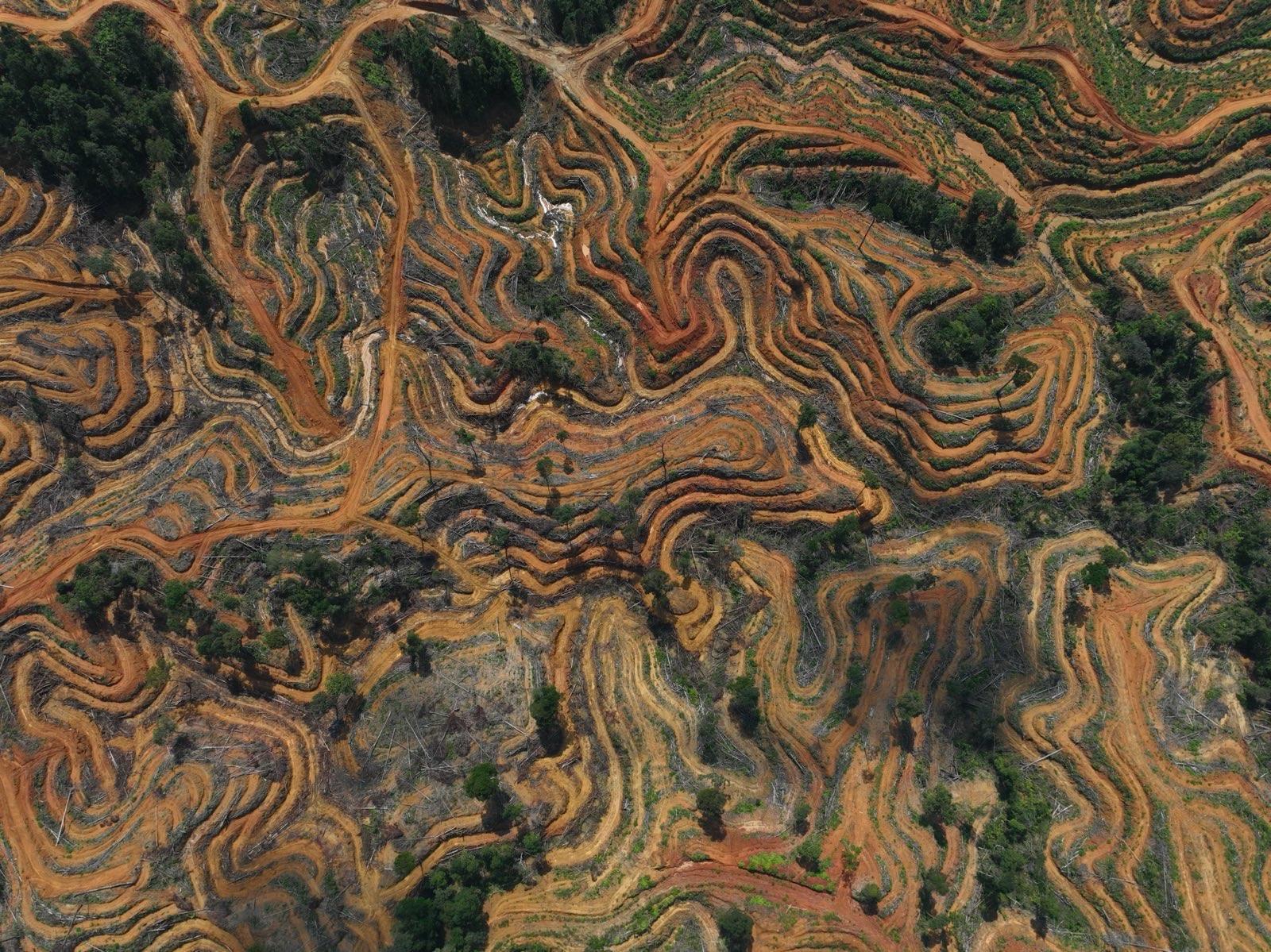
Large scale clearance of rainforests by PT. Sawit Panen Terus for a new palm oil plantation in the district of Subulussalam, Indonesia. February 2024. GPS Coordinates 2°47’19.9″N 97°58’45.0″E
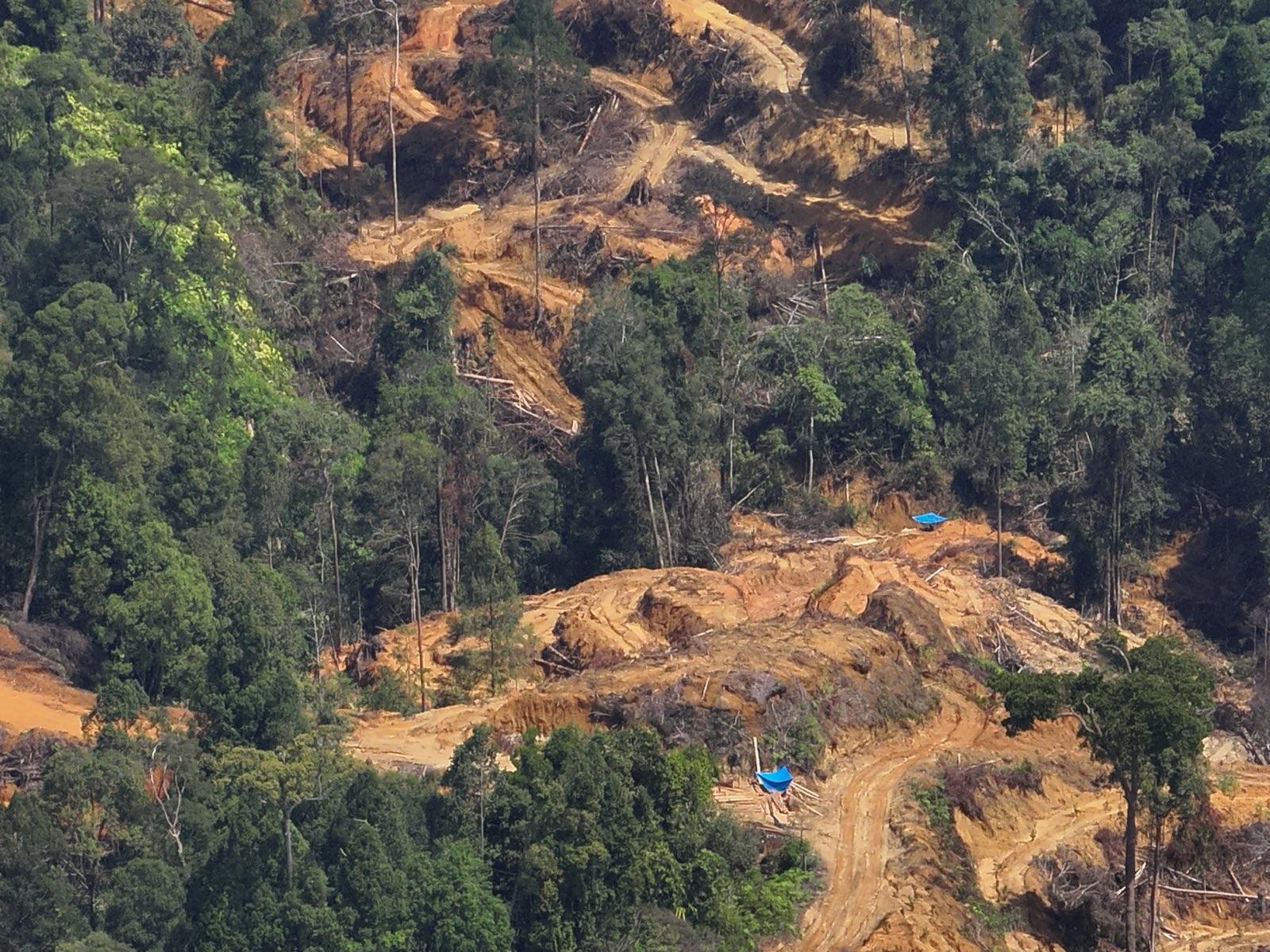
Large scale clearance of rainforests by PT. Sawit Panen Terus for a new palm oil plantation in the district of Subulussalam, Indonesia. February 2024. GPS Coordinate 2°47’23.1″N 97°59’05.1″E
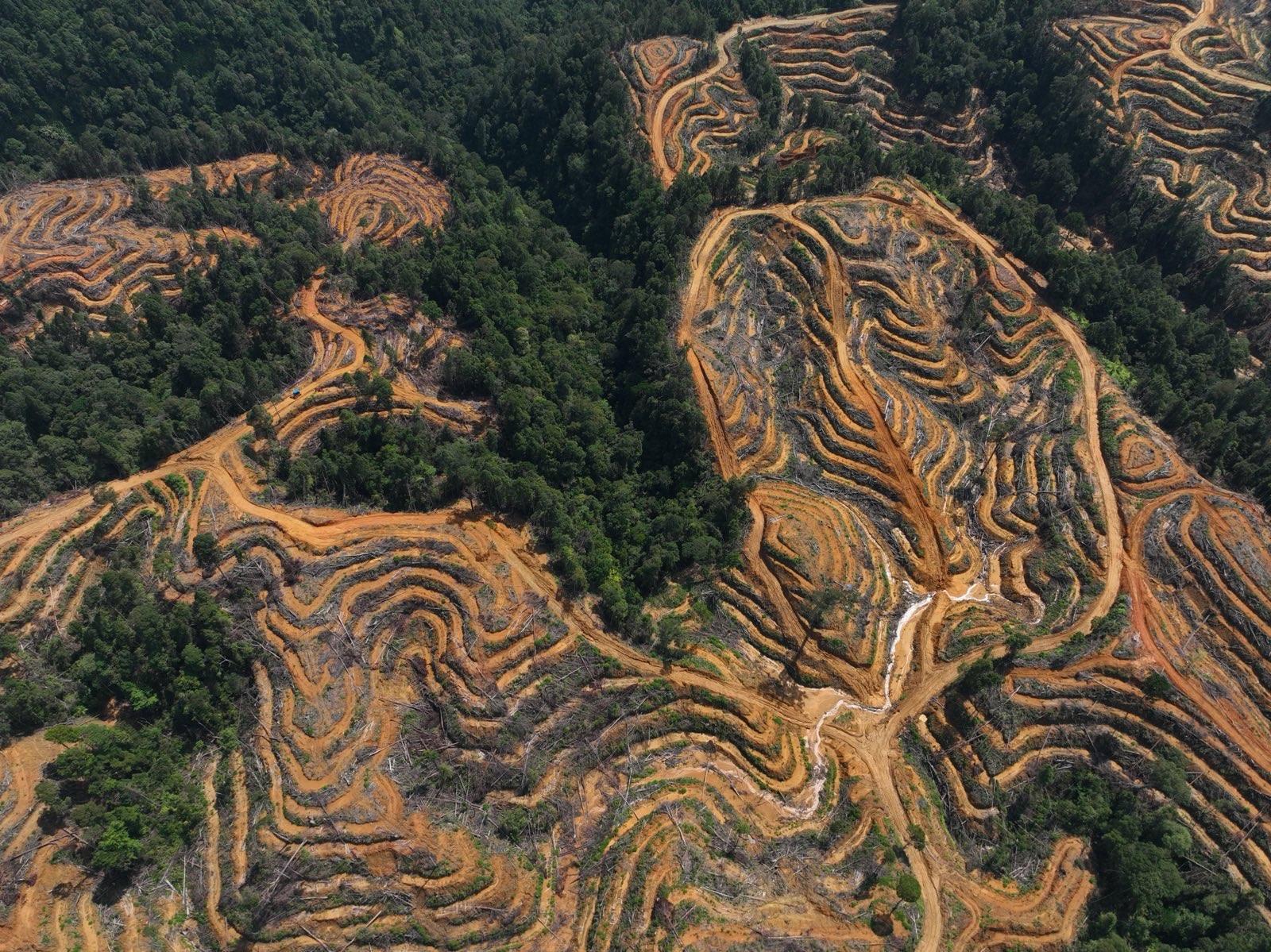
Large scale clearance of rainforests by PT. Sawit Panen Terus for a new palm oil plantation in the district of Subulussalam, Indonesia. February 2024. GPS Coordinates 2°47’19.9″N 97°59’05.0″E
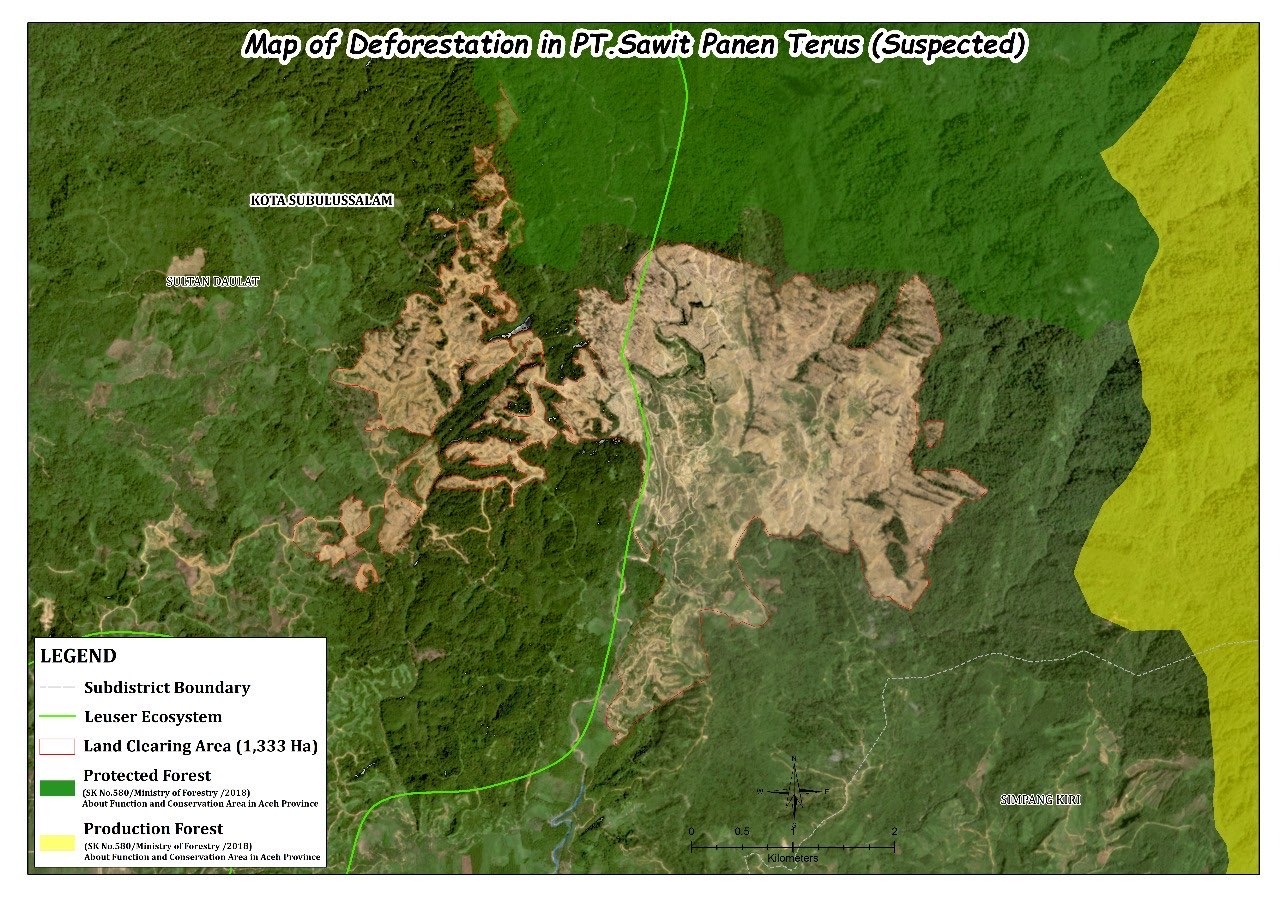
Map showing the indicative area of PT. Sawit Panen Terus’s clearing of lowland rainforests for a new palm oil plantation in the district of Subulussalam, Indonesia. February 2024. The map shows parts of the lowland rainforest that have been cleared and are located within the boundary of the Leuser Ecosystem (shown by green line).
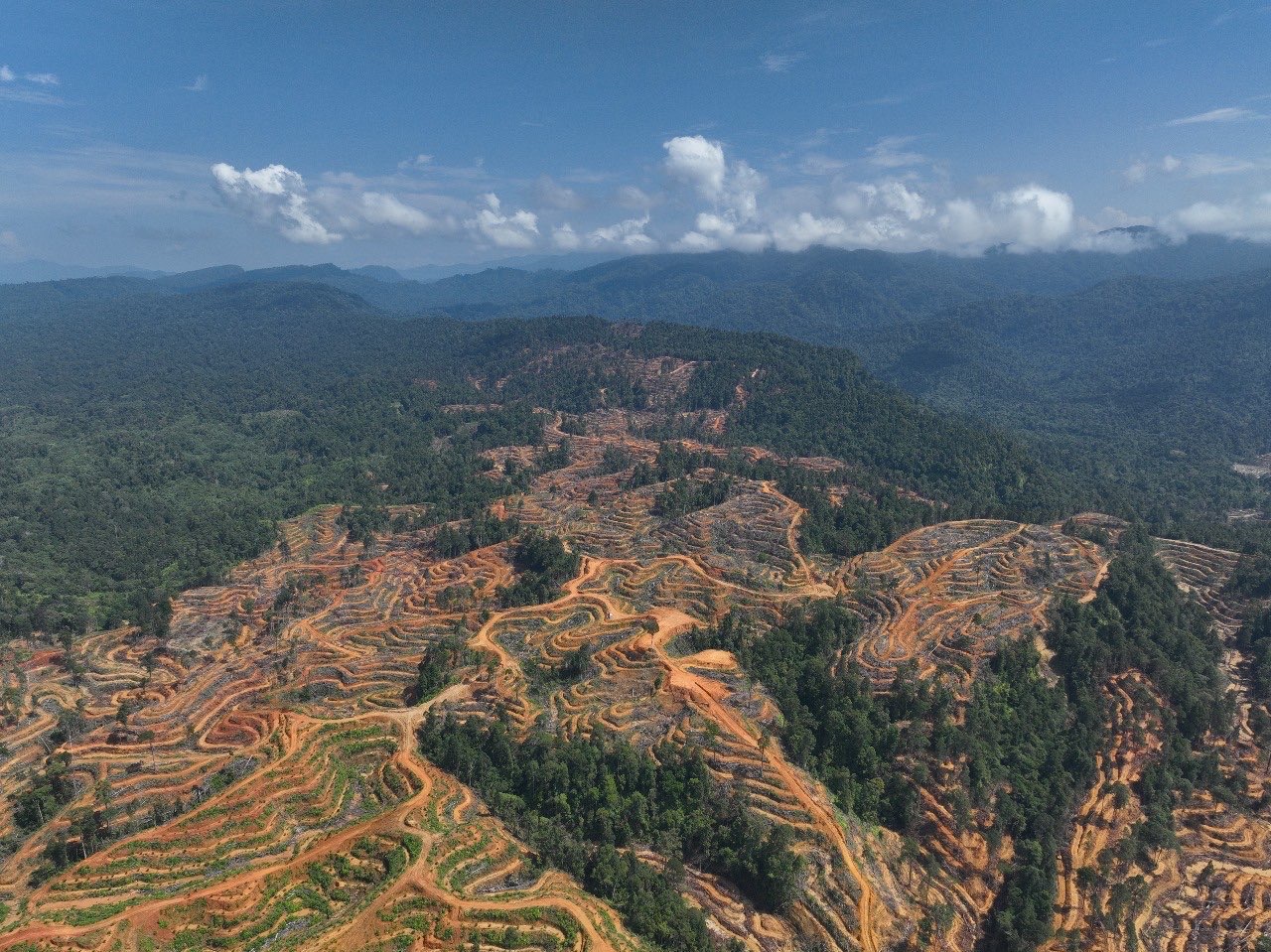
Large scale clearance of rainforests by PT. Sawit Panen Terus for a new palm oil plantation in the district of Subulussalam, Indonesia. February 2024.
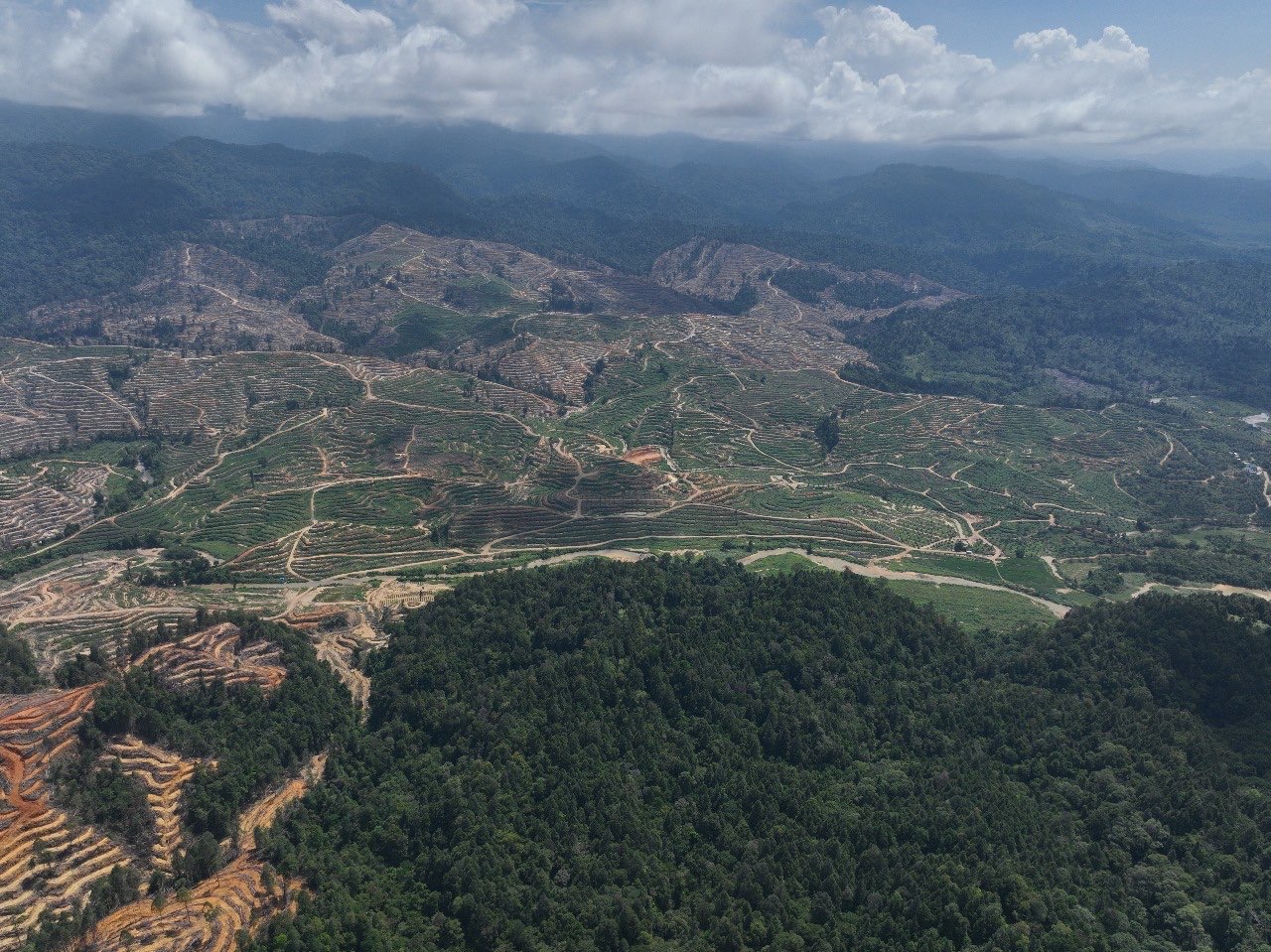
Large scale clearance of rainforests by PT. Sawit Panen Terus for a new palm oil plantation in the district of Subulussalam, Indonesia. February 2024.
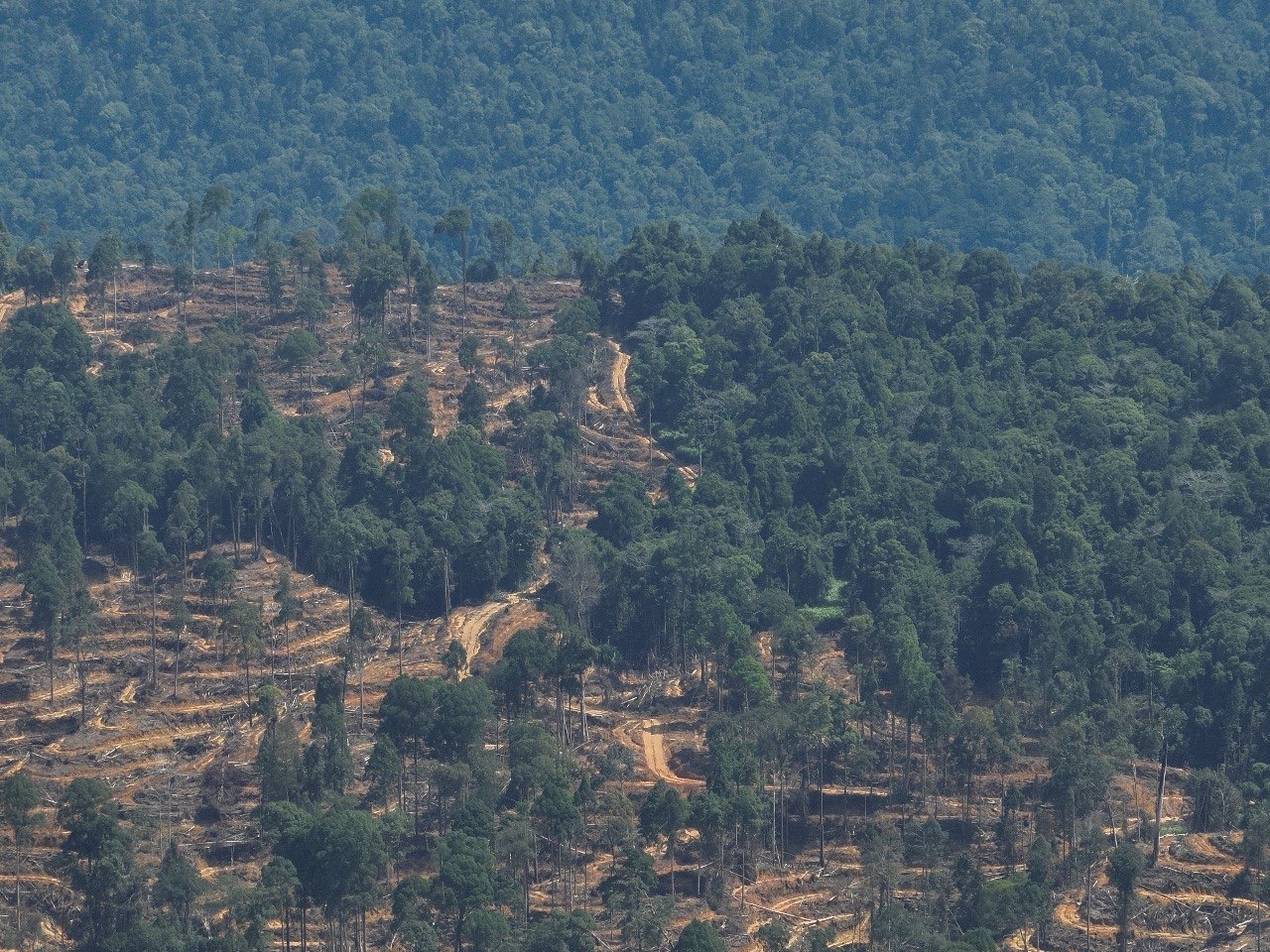
Large scale clearance of rainforests by PT. Sawit Panen Terus for a new palm oil plantation in the district of Subulussalam, Indonesia. February 2024.
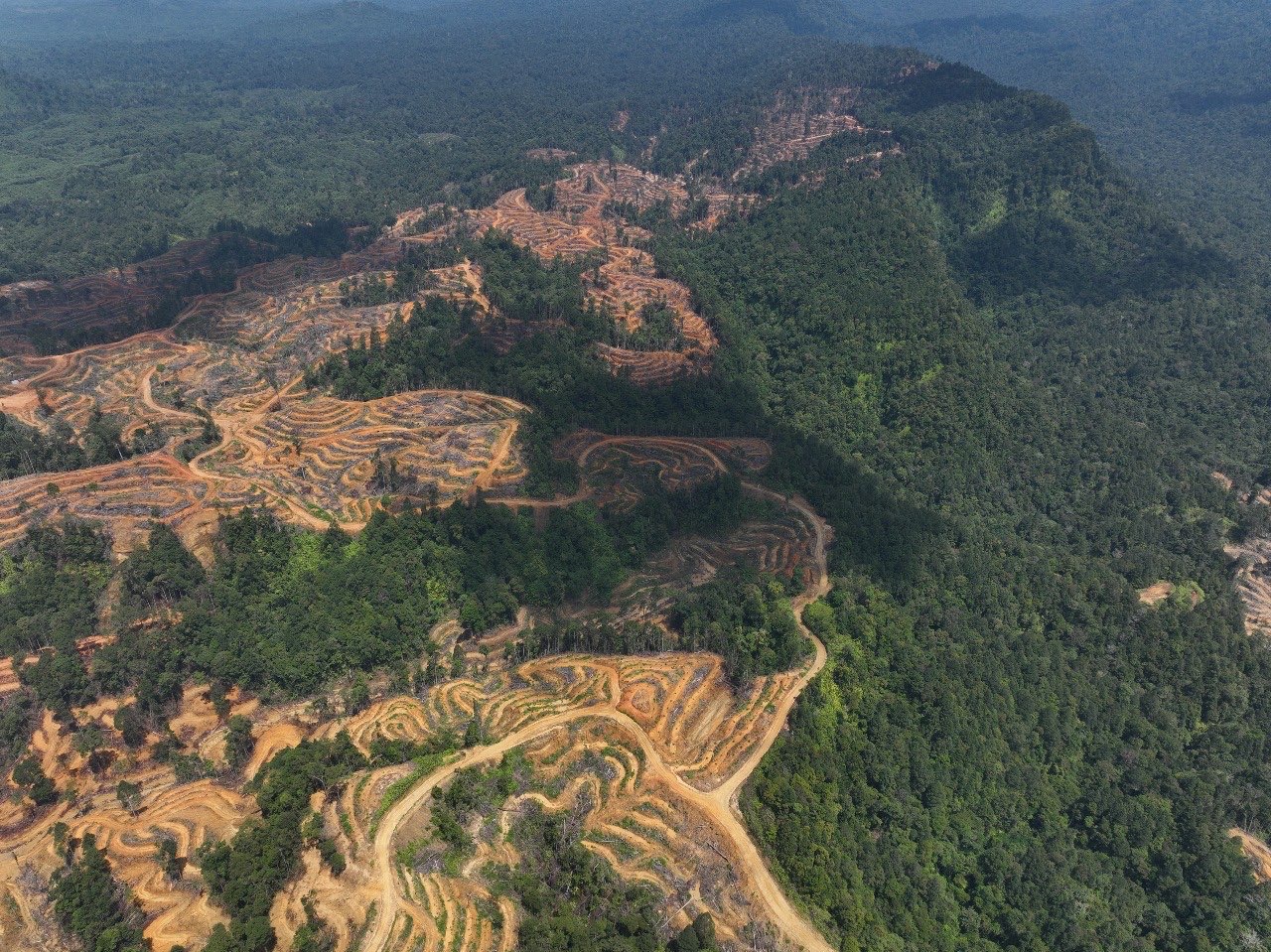
Large scale clearance of rainforests by PT. Sawit Panen Terus for a new palm oil plantation in the district of Subulussalam, Indonesia. February 2024.
The Singkil-Bengkung rainforest in the Leuser Ecosystem presents an increasingly rare opportunity, because it is still not too late to achieve top priority carbon sequestration and conservation goals, for Indonesia and the world, but that window of opportunity is now. Deforestation is on the rise across the Singkil-Bengkung Region and the main driver is palm oil expansion. The high stakes for local communities, threatened wildlife and the global climate demand a thoughtful, coordinated, solution-oriented approach by all parties to achieve long term conservation goals and sustainable economic prosperity.
The global market now demands palm oil that is free of deforestation, peatland development, and exploitation of communities and workers, especially in global biodiversity hotspots like the Leuser Ecosystem. Urgent action is needed to reverse the decade-long trend of deforestation, draining and burning of the Singkil-Bengkung peatlands; to minimize flooding events along the once stable and meandering Alas and Bengkung Rivers; and to address the economic impoverishment that drives wildlife poaching, illegal logging and land clearing.
Global brands –– and therefore their customers –– remain exposed to deforestation-tainted Conflict Palm Oil. This problem continues due to a lack of investment in traceability and compliance systems, low palm oil prices, competition for higher- quality oil palm fruit amongst a network of underperforming mills, and an absence of capacity building in best agricultural practices. There is an opportunity to diversify economies and drive investments in low-carbon, community-led, small-scale agriculture that respect the rights of communities and smallholder farmers to manage their lands, improve livelihoods, and enable the long-term protection and management of peatlands and lowland rainforests critical for the survival of the Sumatran orangutans, tigers, rhinos and elephants.
Governments and communities, together with the brands and palm oil companies responsible for the impacts of the profit- driven plantation agriculture model, can invest in lasting solutions. Collaborative forest and peatland monitoring and response systems must be established that can enforce their policies throughout supply chains all the way to the forest floor in the Leuser Ecosystem. The systems that are in place are clearly failing to halt new deforestation for palm oil.
Investments must also be made by brands like Mars, Nestlé, Colgate Palmolive in long-term solutions that support the protection and restoration of the Singkil-Bengkung region and the Rawa Singkil Wildlife Reserve. The harm caused to the environment and communities whose customary rights have not been recognized must be addressed. Much-needed improvements to the palm oil industry, which is relied upon by tens of thousands of smallholder farmers, must be delivered. Together, stakeholders must develop a common and just vision to halt the destruction of the Singkil-Bengkung region.
